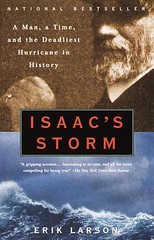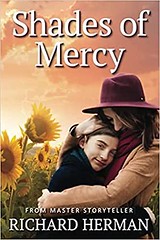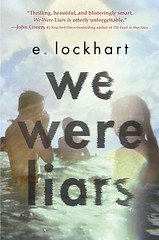“Good, because I don’t use sex as a weapon,” Bobbie said. “I use weapons as weapons.”
— James S.A. Corey, Caliban’s War
 Caliban’s War (The Expanse #2)
Caliban’s War (The Expanse #2)
by James S.A. Corey
![]()
Excerpt from my original review (March 2019):
I started watching “The Expanse” a couple of years ago and am now partway through the third season. Perhaps because I read it years before the TV series started, the connection between “Leviathan’s Wake” and TV’s “The Expanse” didn’t register, but now that I’m into the show, it hits me that “Caliban’s War” and the show’s second season are nearly identical. The correlation between the book and the TV show is one of the closest I’ve seen. Still, the book enriches the show, with additional detail and deeper dives into the characters. “Caliban’s War” is excellent reading. It’s everything I liked about “Leviathan’s Wake,” maybe even more so now that I’ve also watched the TV series.
As with the first book in The Expanse series, my rating for the second book went up on a second reading. I was only partially correct about the close correlation with the second season of the televised version: the book, as with the first, is richer and more complex, with some very significant differences, and the characters are far more engrossing. This is not to say they didn’t do a bang-up job with the TV version. One does see the actors now when reading the novels, and the mental image of the cast is a perfect accompaniment to them.
“No sir,” Dunwoody snapped. “It cannot be; no cyclone ever can move from Florida to Galveston.”
— Erik Larson, Isaac’s Storm
 Isaac’s Storm: A Man, a Time, and the Deadliest Hurricane in History
Isaac’s Storm: A Man, a Time, and the Deadliest Hurricane in History
by Erik Larson
![]()
I read “Isaac’s Storm” on the urging of a friend. Erik Larson was familiar to me from reading “The Devil in the White City,” so it was an easy sell.
I have a pilot’s knowledge of meteorology but knew little about its history. The retelling of the U.S. government’s efforts to establish a military branch devoted to the study and reporting of meteorological data, increasing public pressure to turn data collection and reporting into accurate forecasting, and how little anyone in the 19th century knew about the nature and behavior of hurricanes, was fascinating. So too was Larson’s look into the behind-the-scenes power plays and politics of those early days. I’ve been in a few hurricanes, cyclones, and typhoons that did not turn away from populated areas as expected, and could feel at a gut level the terror of the hurricane that wiped Galveston off the map in 1900.
Larson’s decision to center this history on an individual, Isaac Cline, the U.S. Army Signal Corps’ chief meteorologist in Galveston at the time of the storm, ties the narrative together, but Isaac seems an unsympathetic and unreliable character, almost all his post-disaster testimony self-serving and untrue. That, too, is fascinating, in a sad way. History is written by the victors … then rewritten a century later by those willing to tell more of the truth than was originally revealed.
“Claire Marie Allison loved her son, mother, husband, and sunflowers, each in their own way.”
— Richard Herman, Shades of Mercy
 Shades of Mercy
Shades of Mercy
by Richard Herman
![]()
“Shades of Mercy” is a new novel from my friend Dick Herman, his first since 2017.
Fans of Herman’s earlier novels know him as a writer of Tom Clancy-esque military thrillers with aviation, specifically USAF aviation, themes. If you’ve read the later novels, you know some of Herman’s characters put their military expertise to work in politics.
Dick, sending me a copy of “Shades of Mercy,” told me the new novel is a departure for him. True, the protagonist, Claire Allison, is a school teacher with no military or aviation history, but her husband has plenty of both. She shares his values and sense of duty, which she puts to work improving schools and eventually entering the political arena, first in the Phoenix school system, then in Arizona politics, eventually all the way to the top. What is a departure is the attention Herman pays to journalism, information technology, police work, prisons, and the criminal justice system, all of which get a workout as Claire threads her way to the top. Plenty of research went into this novel, and it shows.
Claire, a paragon of niceness and caring to students, friends, and associates, is, out of the public eye, a plotter and strategist who doesn’t hesitate to play dirty for greater goals, up to and including cold-blooded murder. Her foil is David Parker, a tabloid journalist with a personal beef. Interestingly, while Claire’s alternating chapters are written in the third person, David’s are written in the first, making him the more immediate and sympathetic of the two.
While David has inside police sources and expert computer hackers at his disposal, Claire has a hacker in her own pocket, a deus ex machina figure, Nedd, who knows everything and can rewrite history on the fly. Boy, couldn’t we all use one of those! It’s almost too easy how Nedd keeps Claire one step ahead of the journalist, political opponents, and the law. In the end, in the America of “Shades of Mercy,” being a murderer is no bar to high office and a happy life … so long as you kill someone everybody wants dead.
The story is more than thrilling enough to keep readers turning pages, and it’s hard not to root for characters who get aggressive when things get tough, as Herman’s stable of fighter pilots (and now school teachers) always do. It’s great to see Dick writing again.
“Nothing spells trouble like two drunk cowboys with a rocket launcher.”
— C.J. Box, Cold Wind
 Cold Wind (Joe Pickett #11)
Cold Wind (Joe Pickett #11)
by C.J. Box
![]()
I’m reading C.J. Box’s Joe Pickett novels, which are set in a mountainous, sparsely-populated corner of Wyoming and feature a fish & game warden who finds himself and his family threatened by bad men intent on raping the West. They’re great reads, engrossing and impossible to put down, and I’m devouring the series.
It can be a struggle to write insightful, fresh reviews of individual novels in a series. I’ll start by repeating what I said about “Open Season,” the first Joe Pickett novel:
As much as I enjoy reading Lee Childs’ Jack Reacher stories, Jack is a superhero, a figure of fantasy. When Jack Reacher gets even, people die … but not before a righteous ass-kicking. While C.J. Box brings on Reacheresque tension and villainy, when it comes to his human and relatable hero Joe Pickett, it’s more a matter of luck. Joe prevails, a believable form of getting even. But don’t worry. Asses do get kicked, in satisfying ways. I really like this Pickett guy. He makes mistakes, and plenty of them. He worries about money. He trusts people he shouldn’t. He’s a regular Joe. I really like the depictions of Wyoming, a state I lived in as a teenager and remember fondly. Joe, at least in this first novel, has an almost-too-perfect family, but there are tensions, and I sense troubled teenage years ahead for his daughter Sheridan. Granted that everything in this novel is fiction, it feels real and true.
I’m disappointed in “Cold Wind.” Joe Pickett is a complex man, but one thing we can count on is his impartial, Dudley Do-Right application of the law, from giving the governor a citation for fishing without a license in the first novel to arresting the murderous Grim Brothers, knowing he’ll likely die in the attempt. Yet here, Joe acquiesces to a murder committed by a family member, almost as if to say “Well, that’s par for the course … I’ll give her a mulligan on this one.” What does Joe stand for after that? Keeping the peace at home?
Joe also behaves uncharacteristically in his long-winded explanation of the house of cards that is wind farm financing. I don’t know how C.J. Box could have handled it better … it’s a critical plot point, after all … but putting the explanation in Joe’s mouth is jarring, because if there’s another thing we know about him it’s that he’s a man of few words.
I wish there had been more to sidekick Nate Romanowski’s part of the story. There are gaps in the action with no satisfactory explanation of how Nate manages to get from A to B, for example the tracking and apprehension of the wastrels who kill his lover. Then there’s Nate’s rescued golden eagle, hovering overhead as a supernatural familiar as he runs said wastrels to earth, then forgotten for the rest of the story.
The ending seems rushed and incomplete. Joe winds up confronting the murderer and telling her point by point how and why she pulled off the crime, a la Hercule Poirot. This too is out of character for Joe, but it’s the revelation that his morality is conditional that set me back on my heels. It ain’t right, and I wonder if C.J. Box is going to make more of what I now see as Joe’s fall in the novels that follow.
“There is not even a Scrabble word for how bad I feel.”
— E. Lockhart, We Were Liars
 We Were Liars
We Were Liars
by E. Lockhart
![]()
A friend sent me a link to an NPR segment featuring three authors discussing trends in young adult literature. I read and reviewed a lot of excellent (and not so excellent) YA several years ago, but haven’t picked anything up lately, unless you count Ishiguro’s “Klara and the Sun” (which though classified as adult science fiction also meets every criterion of YA).
The three writers, E. Lockhart, Adam Silvera, and Leigh Bardugo, were unknown to me, so I decided to read one book from each. E. Lockhart’s “We Were Liars” was immediately available from my local library, so I started with it.
My reaction is mixed. A rich family summers on a private island off Martha’s Vineyard. They’re the Sinclairs, but I can’t help thinking of them as the Kennedys. The narrator, Cadence, is the 17-year-old granddaughter of the clan’s patriarch, now declining into dementia but with his nasty streak intact, playing family members off against one another with threats of disinheritance. No one works, no one has any ambition, blah, blah … I came to care almost as little for these characters, most definitely including Cadence, as I did for the spoiled little shits in “Gossip Girls,” a YA book I once literally threw across the room.
The defining characteristic of YA, it seems to me, is that it centers around young people (duh!) experiencing aspects of adulthood for the first time ever. Everything, good and bad, is new. In that way, YA resembles science fiction (which probably explains why so much SF is YA).
Verging into spoiler territory here. Candace’s experiences are the standard ones of YA: seeing adults as the insecure, childish poseurs we are, falling in love, yadda yadda. But then, during the summer of her 15th year, something awful happens on the island and she blanks it out. Two years pass and it begins to come back.
I’ll never forget my first waking nightmare: leaping out of bed with vivid memories of an unspeakable crime I’d just committed, convinced the police were hot on my heels and would be beating down the door any minute. Guilt and fear persisted for hours, so strong were the memories of the dream. Let’s just say Candace has her first waking nightmare … only it isn’t a dream.
Okay, that’s a cool angle. It’s a gripping story, a page turner. But I can’t relate to rich kids, so a mark down for that. On to Silvera’s “They Both Die at the End” and Bardugo’s “Shadow and Bone.” Meanwhile, I await new work from Paolo Bacigalupi and Philip Pullman, in my estimation the best writers of serious YA on the planet.
“If the bookshelves were pews, and the counter an altar, then this might be a chapel.”
— Chris Hammer, Scrublands
 Scrublands (Martin Scarsden #1)
Scrublands (Martin Scarsden #1)
by Chris Hammer
![]()
Longish, complex mystery set in Australia. A reporter, Martin Scarsden, visits a small town to interview locals and write a feature story about how the town has changed one year after a spectacular mass murder. His editors want scoops and pressure him to report. Working with incomplete, misleading, and false information, he files stories that damage his relationship with the townies and the law, and in short order tube his career as well. He eventually plays the pivotal role in discovering and bringing to light the truth of the matter, mending his relationship with the town and his reputation.
There’s enough action and suspense to keep you turning pages, but also a lot of repetition and long-winded exposition inserted as dialog between Martin and a few others. Some scenes where surprise witnesses reveal shocking new details to Martin are clumsily contrived. Good enough, though, to read all the way to the end.
Did I read an American edition? Pretty sure Aussies measure temperatures in centigrade and distances in kilometers, but here they’re expressed in Fahrenheit and miles. Other than place names, nothing about the novel’s setting seemed particularly Australian to me.